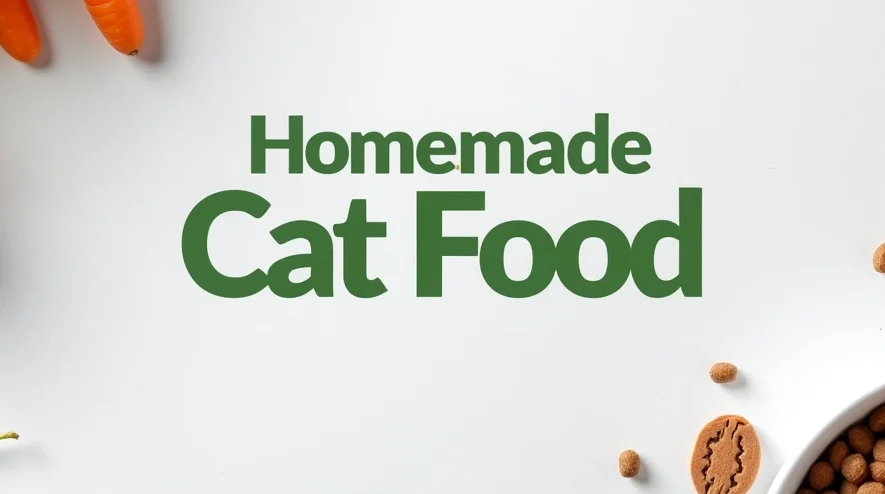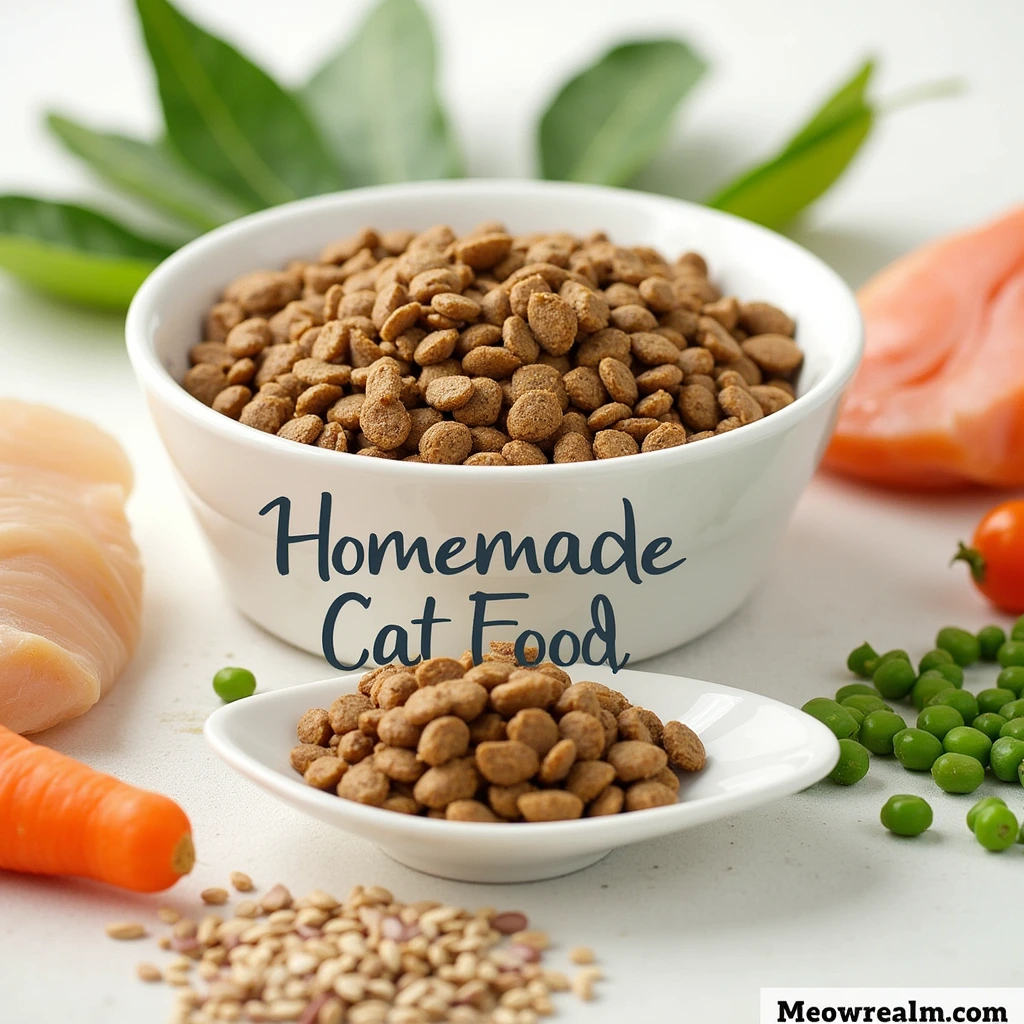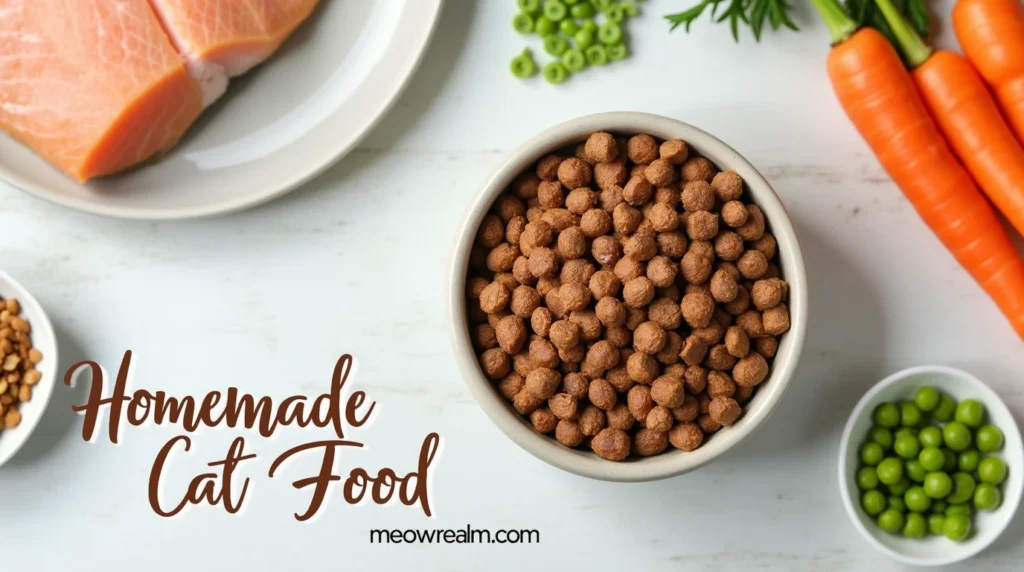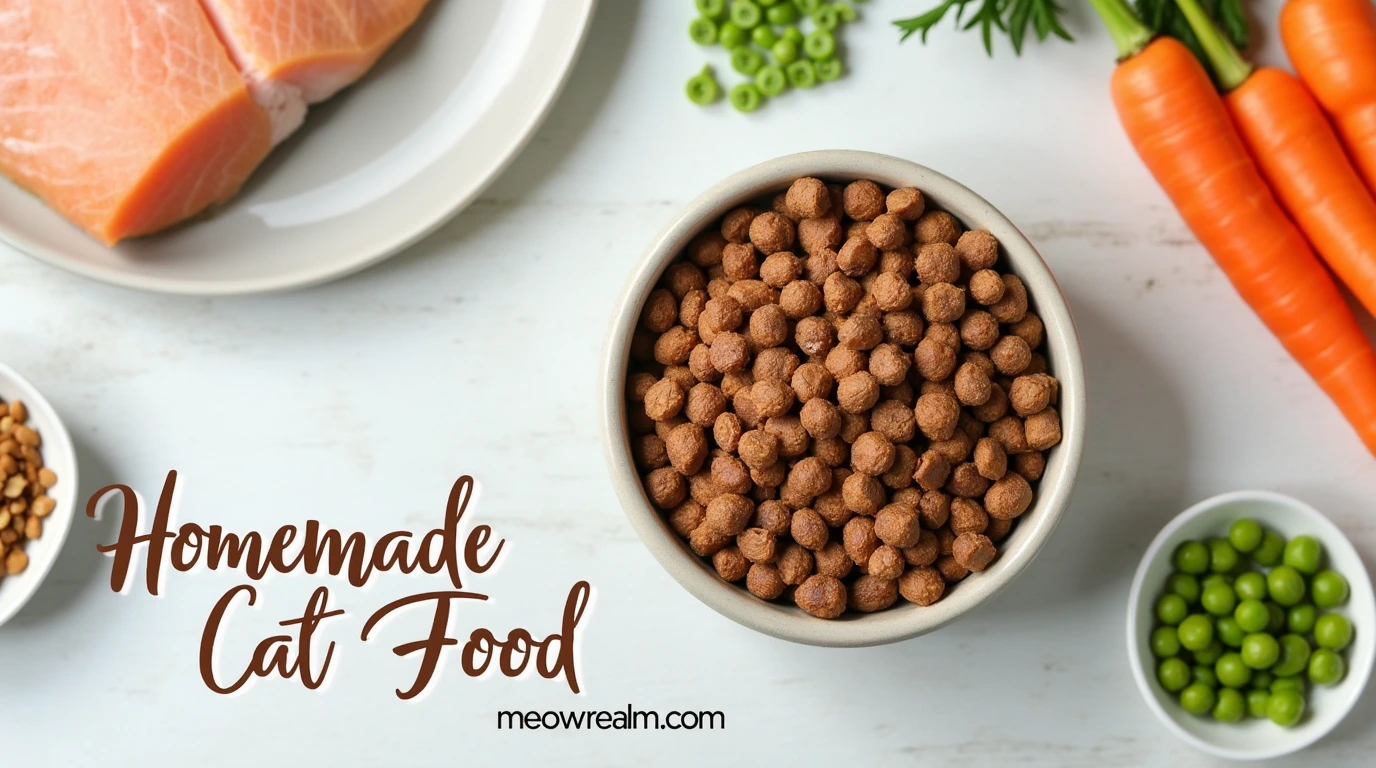If you want to ensure your feline friend enjoys a long, healthy life, providing a well-balanced diet is crucial. While commercial cat food is convenient, many brands contain artificial preservatives, fillers, and additives that might not be the best for your pet.
By preparing homemade cat food, you gain full control over the ingredients, ensuring your cat gets the highest-quality nutrition. Not only does homemade cat food provide a healthier alternative, but it also allows you to cater to any specific dietary needs your cat may have. This guide covers everything you need to know about making your own cat food, including 10 easy recipes your furry companion will love.

Table of Contents
Why Homemade Cat Food is a Great Choice
The Benefits of Making Your Own Cat Food
When you prepare homemade meals for your cat, you offer several advantages over store-bought pet food:
- No harmful additives – Many commercial cat foods contain artificial colors, flavors, and preservatives that may impact your cat’s health over time.
- Custom nutrition – You can adjust the ingredients to suit your cat’s specific dietary requirements, including food sensitivities or allergies.
- Fresher ingredients – Homemade meals contain fresh proteins, healthy fats, and essential nutrients that store-bought food may lack.
- Cost savings – While high-quality cat food can be expensive, homemade meals often provide a more affordable option without compromising quality.
Things to Consider Before Making Homemade Cat Food
Before you start making your own cat food, it’s important to understand what nutrients your cat needs and which foods to avoid.
Essential Nutrients for Cats
Your cat’s diet must include:
- Protein – The foundation of a cat’s diet should include high-quality animal proteins like chicken, turkey, beef, and fish.
- Taurine – An essential amino acid that supports heart and eye health.
- Healthy Fats – Omega-3 and omega-6 fatty acids from sources like fish oil help maintain a shiny coat and support brain function.
- Vitamins & Minerals – Cats require specific vitamins and minerals, including calcium, phosphorus, and vitamin D.
Foods That Are Toxic to Cats
Some human foods are toxic to cats and should always be avoided:
- Onions and garlic
- Chocolate and caffeine
- Grapes and raisins
- Dairy products (many cats are lactose intolerant)
- Raw egg whites (risk of salmonella and avidin, which inhibits biotin absorption)
10 Easy Homemade Cat Food Recipes
These simple and nutritious homemade cat food recipes will provide a balanced diet for your feline friend.

Protein-Packed Meals
1. Chicken and Rice Delight
Ingredients:
- 1 cup cooked chicken breast
- 1/4 cup cooked rice
- 1 teaspoon fish oil
Instructions:
- Shred the chicken into small pieces.
- Mix with the cooked rice and fish oil.
- Serve in small portions.
2. Turkey and Pumpkin Feast
Ingredients:
- 1 cup ground turkey
- 1/2 cup pure pumpkin puree
- 1 egg
Instructions:
- Cook the ground turkey thoroughly.
- Mix in the pumpkin puree and a scrambled egg.
- Serve at room temperature.
Fish-Based Recipes
3. Salmon and Spinach Mix
Ingredients:
- 1/2 cup cooked salmon
- 1/4 cup steamed spinach
- 1 teaspoon flaxseed oil
Instructions:
- Mash the salmon and mix with spinach.
- Add flaxseed oil and serve.
4. Tuna and Sweet Potato Mash
Ingredients:
- 1 can tuna in water
- 1/2 cup mashed sweet potatoes
- 1/2 teaspoon taurine supplement
Instructions:
- Drain tuna and mix with mashed sweet potatoes.
- Add taurine supplement before serving.
Raw Diet Options
5. Raw Chicken and Liver Blend
Ingredients:
- 1 cup raw chicken thighs
- 1/2 cup chicken liver
- 1 teaspoon bone meal
Cooked Homemade Cat Food Recipes
6. Slow-Cooked Chicken Stew
Ingredients:
- 1 pound chicken thighs
- 1 carrot, chopped
- 1/2 cup peas
- 2 cups bone broth
Instructions:
- Cook all ingredients in a slow cooker for 4 hours.
- Shred chicken and mix before serving.
Pros and Cons of Homemade Cat Food

The Pros
✅ Full control over ingredients ✅ No artificial preservatives or fillers ✅ Tailored to your cat’s needs ✅ Cost-effective
The Cons
❌ Time-consuming to prepare ❌ Nutrient balance requires vet guidance ❌ Some cats may be picky
FAQs About Homemade Cat Food
Frequently Asked Questions About Homemade Cat Food
Is homemade cat food better than store-bought cat food?
Yes! Homemade cat-food allows for complete control over ingredients and avoids harmful preservatives.
How can I ensure my cat gets all necessary nutrients?
Adding a vet-approved supplement or a taurine source is essential.
Can I feed my cat only homemade food?
Yes, but consult a vet to ensure the diet meets all nutritional needs.
How should I store homemade cat food?
Store in airtight containers in the fridge for up to 3 days, or freeze for longer storage.
A Healthier, Happier Cat with Homemade Cat Food
Making homemade cat-food is one of the best ways to ensure your furry friend gets high-quality, nutritious meals. By following these recipes, you can create a balanced diet that promotes health and longevity. Always consult your veterinarian before switching to homemade food to ensure your cat gets all necessary nutrients.
For more expert advice on cat care and nutrition, visit MeowRealm. If you found this guide helpful, share it with fellow cat lovers!

